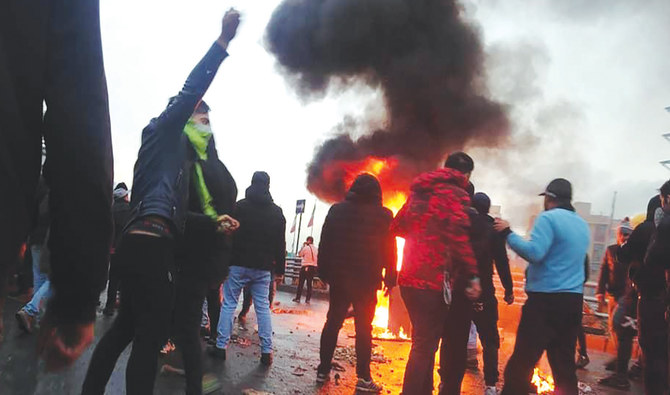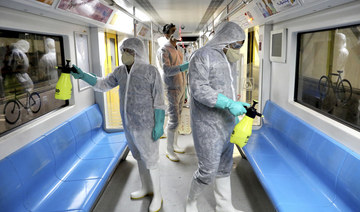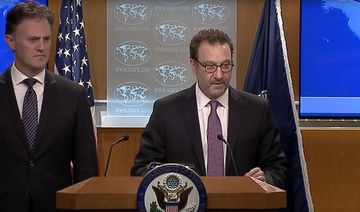LONDON: Iran’s failure to prevent violence against its own people by security forces, or to hold senior officials to account, will not dissuade protesters, said the president of the International American Council following the release of a new report by Human Rights Watch (HRW).
“Straightforward repression and the use of brute force is something that Iranian people have been enduring for a long time, and they can be expected to continue pushing back against it with extraordinary resilience,” Dr. Majid Rafizadeh, who is also a political scientist at Harvard University, told Arab News.
“This was made clear during the previous nationwide uprising, when dozens of peaceful protesters were killed, either by Islamic Revolutionary Guard Corps (IRGC) gunfire or by torturous interrogations following their arrest. Yet the uprising continued for some time,” he said.
“The US and Europe have the capabilities to provide large segments of the Iranian population with tools that would help them to go on organizing against the regime and countering the IRGC’s efforts to suppress the population.”
HRW said Iran had failed to hold its security forces accountable for violence, including unlawful lethal force against civilians, during mass demonstrations that broke out in November 2019.
Tehran, it said, had also yet to reveal the number of people killed, injured or arrested during the protests. HRW urged the UN Human Rights Council to take action against the regime.
Amnesty International said at least 304 people had been killed by security forces. HRW reported Iranian politician Hossein Naghavi Hosseini as saying as many as 7,000 people had been detained.
Opinion
This section contains relevant reference points, placed in (Opinion field)
Families of victims, it added, had been warned and in some cases threatened by the authorities not to talk to the media or to try to hold public protests or commemorations on behalf of their relatives.
HRW said there had also been reports of mass abuse of prisoners in detention, and at least three demonstrators in custody had been sentenced to death.
“Iranian authorities have systematically repressed dissent for decades, and they are now confronting popular protests with an astonishing level of violence,” said Michael Page, HRW’s deputy Middle East director.
“Principled international voices should send an unequivocal message that Iran cannot get away with killing protesters.”
HRW said it had evidence of lethal force being used illegally against people, with members of the public, including children on their way to school, being shot at by security forces. Eyewitnesses said heavy machine guns had been deployed against unarmed protesters.
HRW said Iran was in breach of the International Covenant on Civil and Political Rights’ guarantee of the right to freedom of expression and peaceful assembly, as well as multiple facets of the UN’s Basic Principles on the Use of Force and Firearms by Law Enforcement Officials, which it said justified lethal force “only when strictly necessary to protect life.”
In addition, HRW said Tehran had broken Article 4 of its own law on the use of firearms by law enforcement against demonstrators, which permits the use of lethal force only when all other avenues, including clear verbal warnings and nonlethal weaponry, have been exhausted.
Iranian President Hassan Rouhani has referred to protesters killed in clashes as “rioters,” a phrase that has been echoed by other members of the government and by Supreme Leader Ali Khamenei.
Rouhani told the Iranian Cabinet on Nov. 23 that the protesters “were organized, had plans, and were armed and were directed by backward forces in the region, Zionists and the US.”





























